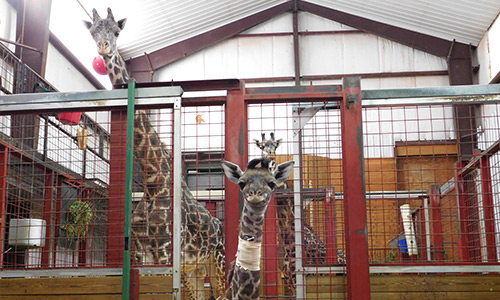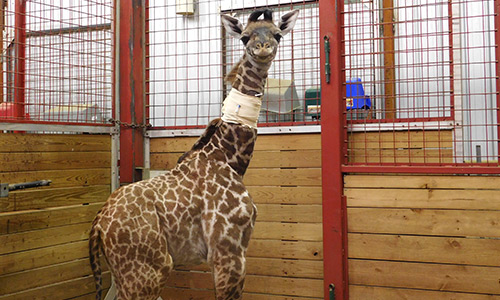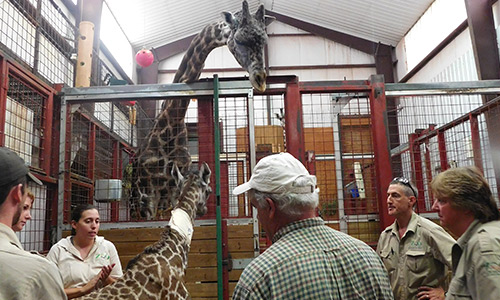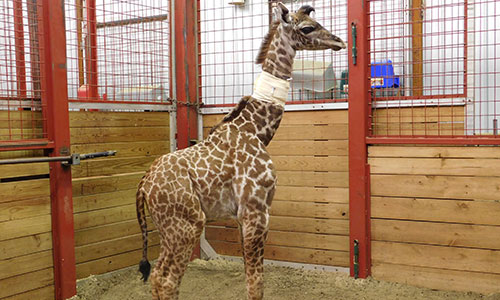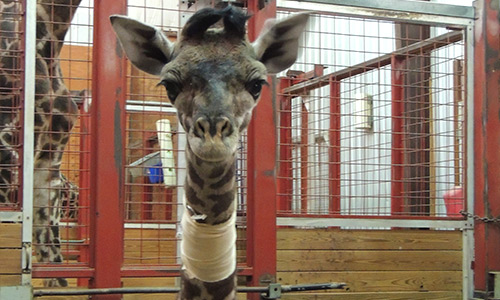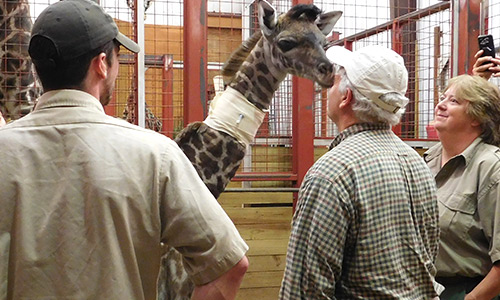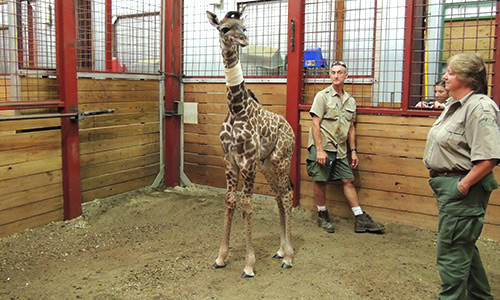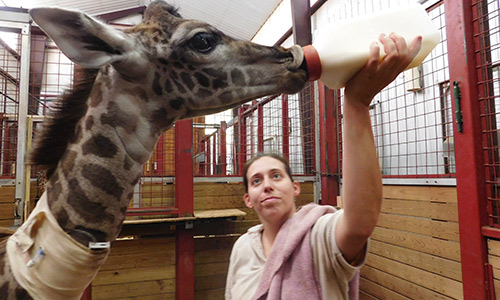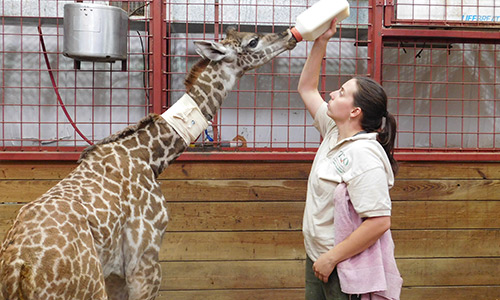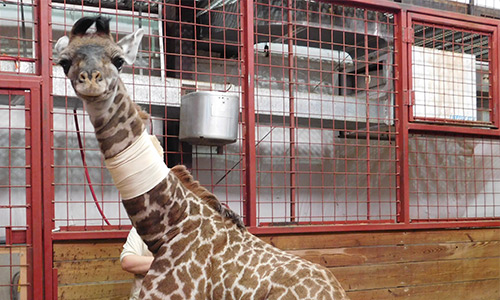Giraffe calf being treated for medical issues returns home to Franklin Park Zoo in Boston
Thursday August 4, 2016
A female giraffe calf born on July 24 at Zoo New England’s Franklin Park Zoo who was being treated at Cummings Veterinary Medical Center at Tufts University has returned home to Franklin Park Zoo.
“We are very encouraged by the calf’s progress and are glad she is back home,” said Dr. Eric Baitchman, Director of Animal Health and Conservation Medicine at Zoo New England. “Even though she continues to require supportive veterinary care for a touch of pneumonia and time to improve her physical coordination, we are optimistic for a good prognosis.”
While it is always preferable for mothers to raise their own offspring, given the totality of circumstances and after much consideration it was determined that the calf’s best chance of survival would require hand-rearing. Caring for the calf will require around the clock dedicated attention, coordination and teamwork by the zoo’s skilled animal management and veterinary teams. It is anticipated that she will be bottle fed until she is weaned at around six to eight months. While currently she is not in the same stall as her mother Jana, they are near each other and can see, hear and sniff each other.
“She captures your heart the moment you see her and she will be a powerful ambassador for her kind in the wild. With few people noticing, giraffe populations in the wild have plummeted by a frightening 40% in just the past 15 years,” said John Linehan, President and CEO of Zoo New England, which operates both the Franklin Park Zoo in Boston and the Stone Zoo in Stoneham. “The ultimate goal is to reunite the mother and calf as she continues to progress and eventually to have the entire family together on the Giraffe Savannah, but it is too early to say when this could happen.”
The calf born on Sunday, July 24, was having difficulty getting up and standing and was not able to nurse from her mother, Jana. After several attempts throughout the day to get the calf to stand and nurse, the decision was made to transport her to the Hospital for Large Animals at Cummings Veterinary Medical Center, part of Cummings School of Veterinary Medicine at Tufts University in Grafton, for more specialized care. The hospital has experience caring for newborn giraffes in similar situations.
“We are pleased that the giraffe has responded well to treatment and that she will be able to continue her recovery at home in the presence of her mother,” said Cummings Veterinary Medical Center’s Melissa Mazan, DVM, DACVIM, who with Alisha M. Gruntman, DVM, oversaw the calf’s care. “We’re happy to have had the opportunity to collaborate with Zoo New England to provide the giraffe with the high level of care and expertise she required.”
Beau, age 17, the baby giraffe’s father, and Jana, age 15, were bred as part of the Association of Zoos and Aquariums’ (AZA) Giraffe Species Survival Plan (SSP), which is a cooperative, inter-zoo program coordinated nationally through the Association of Zoos and Aquariums. Zoo New England is an active participant in this program. SSPs are designed to maintain genetically diverse and demographically stable captive populations of species. Jana is an experienced mother who has successfully reared many other calves at Franklin Park Zoo.
Zoo New England is inviting the public to help select a name for this special “little” calf. To vote, visit http://ow.ly/ZpvN302VKaC.
Please note: There are no photo or video opportunities available at this time.
Related News:

